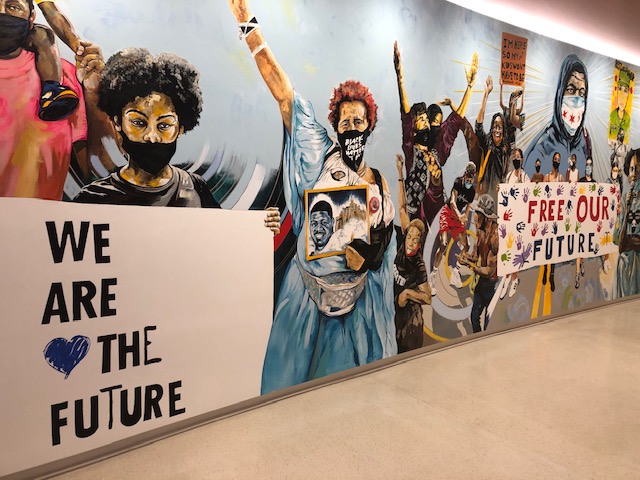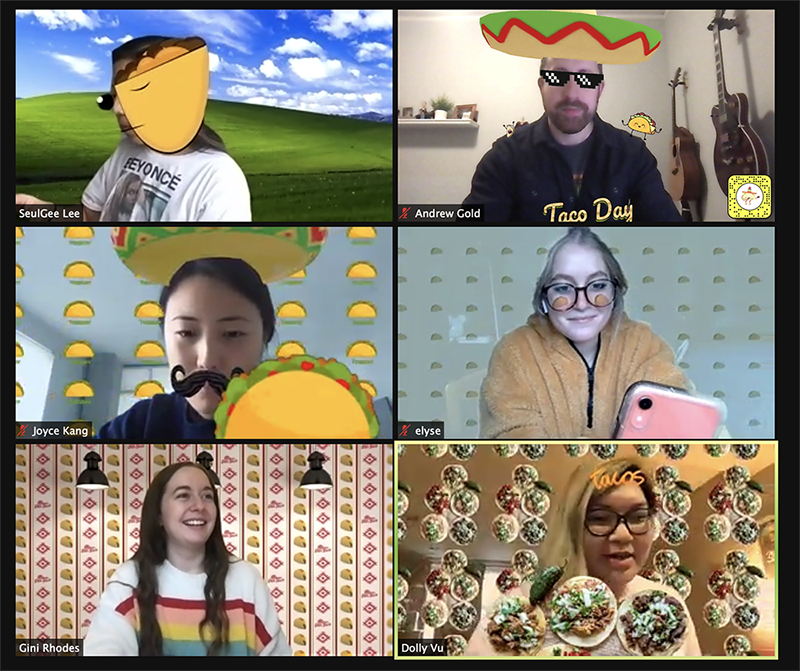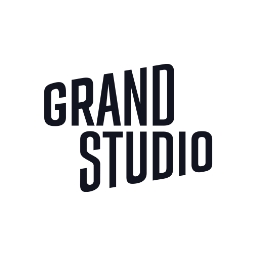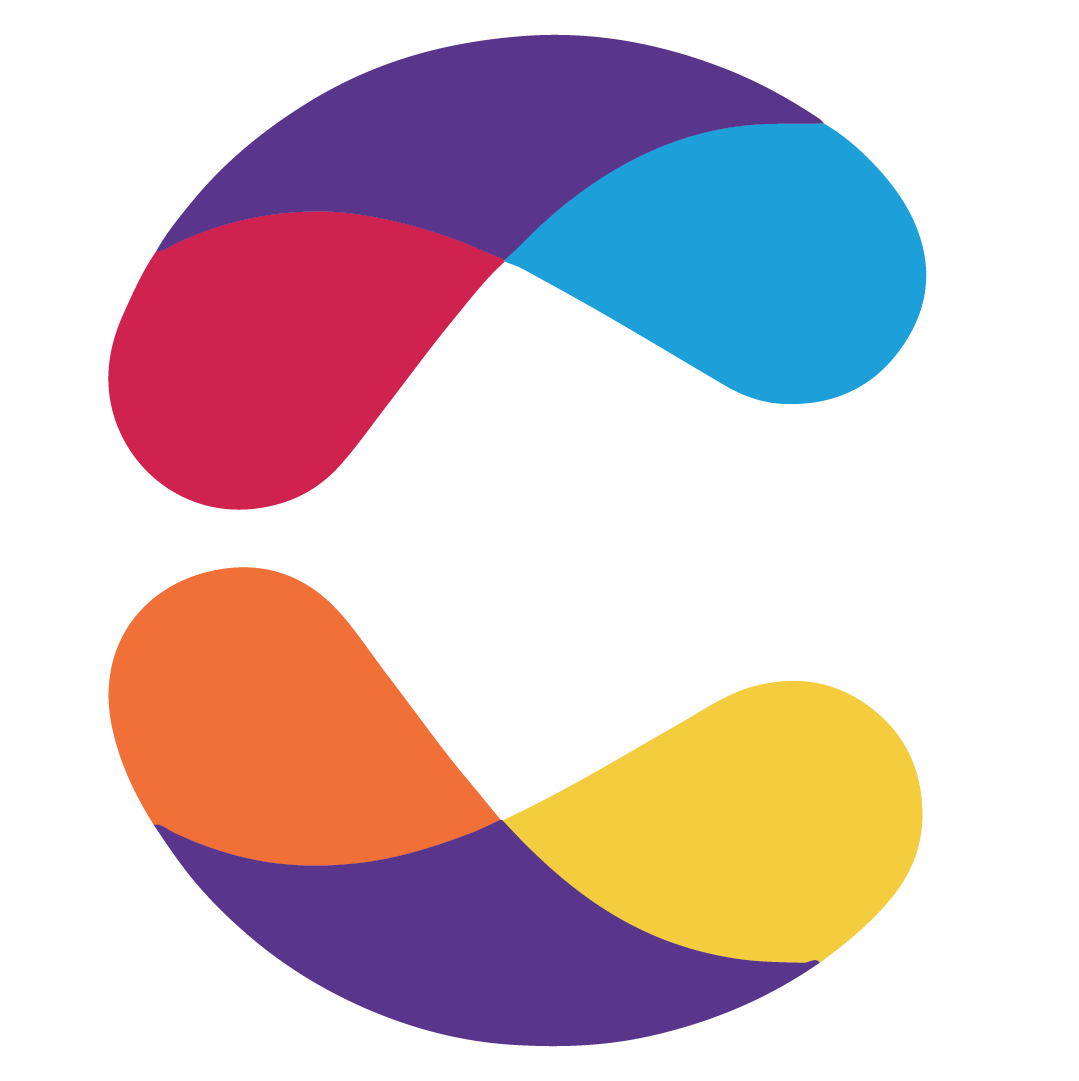Grand Studio is a digital product design and strategy consultancy based out of Chicago. Emerson alumna and Grand Studio Design Director, Diana Deibel ‘03, explains that the consultancy’s work usually begins with their “team going in and doing some amount of discovery work like user research on what [a client’s] problems are.” Each project in Grand Studio’s portfolio is produced as a result of this work and an attention to what Diana refers to as human-centered design or design-thinking methodology.
We recently spoke with Diana to learn more about Grand Studio, her career path, and the company’s recent internship opening on Handshake. Check out some of the highlights from our conversation below…
Based on your description of the company, it sounds like you’re involved with a number of different creative projects.
Diana: “We get to work in a lot of different industries, like sports and food, but we also do a ton of work in healthcare and finance sectors as well.
Working in a consultancy is never boring. You’ll always get to be exposed to one or another problem that you might not get to see working in-house. I worked in-house before this at a health tech company which I loved. I got a lot of deep knowledge there, but then I wanted to explore how else I could solve a problem if I were in a different industry. It’s nice to get that breadth of experience as well as a sort of depth.”

What sets Grand Studio’s culture apart from other consultancies?
Diana: “First of all we’re just designers, we’re not designers and developers. Everybody in our studio except for 2 people are designers and those two people are our Director of People and our Business Development Director… We don’t have account managers or project managers. All our designers are client-facing and consultive. From a designer perspective, playing telephone with the client and trying to understand what they really meant — there’s none of that because you’re talking directly to the client, for better and for worse. Sometimes you have to hear the feedback directly from the client which can be a lot to take in. But it also means that you know exactly what they said and you can address it.
The other thing that we do is staff really lean teams. People are 100% staffed to a project. Oftentimes at an agency you might be staffed to a couple of projects at once. We do just one project at a time so that people can focus on it and really get in there. [Staff] don’t come in and out depending on when their expertise is needed, they’re staffed the length of the project. Even if you’re a visual designer and that’s where your expertise is, you’re still part of discovery research, you’re still part of concepting. You get to learn and grow other skillsets so that when you roll around to your part of it, you have some ability to do strategic input into the designs you’re doing, not just ‘here, make it pretty.’”

What did your career path after Emerson look like?
Diana: “I was a WLP major from Emerson and when I left I sort of did the standard thing of moving to New York and trying to work in theater. I got an internship at a casting agency which was sort of like the domino effect of once you get in one place you’re able to get in kind of a lot of places and make your connections. So I worked in entertainment in New York for about 10 years doing everything from Talent Agent to, eventually, an Associate Producer role at Blue Man Group.
I worked really happily for a while and then decided that I wanted to leave the city, so I moved to Chicago and worked in TV for a little bit. That was mostly documentaries and B2B videos and after a while I was just like, ‘Oh, this isn’t satisfying. I really want to do something a bit more meaningful.’ I found this health tech company that was looking for what they called Health Writers at the time.
It was essentially a content designer and they went through various iterations of titles on [that role], but what it wound up being was a place where I can do UX research, which I didn’t know was UX research at the time. And then conversation design because we did a ton of voice user interface products and it was very naturally suited to somebody who had playwriting and screenwriting experience because it’s all about dialogue, branching logic and how a conversation works.
I was pretty happy there for a while and then [the company] got acquired by a giant company and the culture completely changed. I found my way into consulting and that was a place where I could do a ton of things and still stay with the same company, so that was really engaging to be able to do. I could take the skill set of all the things that I learned, like the kind of project management stuff from my producer days and the design work that I’d just done and then merge all of that together into the role that I’m doing now, which is solving problems and keeping my team happy and on track and using design to do that.”
Can you tell us a bit more about your internship?
Diana: “If you have any kind of a hard skill and by hard skill I mean like hard design skills or something like graphic design or experience prototyping things or digital type experiences, that’s really key to show because there will always be work like that. We always look for some kind of hard skill to ground the soft skills… We’re less focused on things like animation and motion graphics, but that’s certainly not something we would kick out the door. It’s just not our focus, so somebody probably wouldn’t learn a ton about that kind of stuff with us.
Our interns are always incredible. I think our Director of People does a really great job of finding good people who are humble, who are curious, and who are collaborative. Everybody in the studio is actually all three of those things. It’s kind of a big thing for us as a lot of agencies tend to have people with big egos. It’s been a mantra for us to not negate ego, you need to have some confidence, but to really minimize the way your validation and your part plays in comparison to the whole. We build toward a group mentality and a community mentality, so we look for interns to have that similar kind of philosophy and outlook.
Another thing that differentiates us a little bit is that we don’t have a ton of late nights. We really try to protect the work-life balance and the same is true for our interns. We’re not asking people to work until midnight every night for no money. It’s a paid internship and we try to really protect the hours, so that the intern isn’t working more than 40 hours a week.”
Diana shared that her favorite parts of working at Grand Design are the people, the ability to grow in the company, and the amount of interesting work that comes through. Applicants who are interested in Grand Studio’s internship should also check out the company’s Instagram and Medium accounts.
Diana is also the co-author of Conversations with Things, an in-depth guide to UX design and design conversations that are “useful, ethical, and human-centered”. Interested students can learn more and purchase a copy on Rosenfeld Media.


